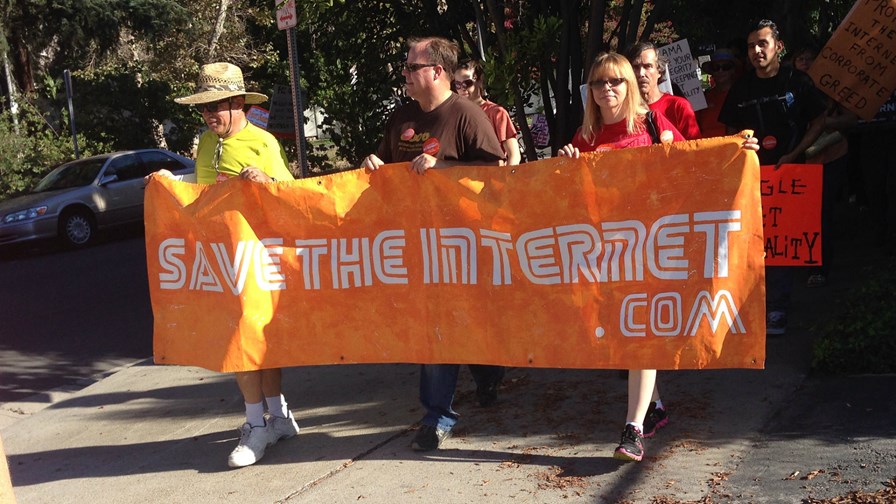
via Flickr © Free Press Pics (CC BY-SA 2.0)
FCC chairman, Tom Wheeler, has revealed the shape of his Title II net neutrality regulatory changes for the US. Any surprises?
As expected ISPs will be barred from throttling or favouring traffic for commercial reasons; reasonable network management will be allowed; and price discrimination which attempts to sneak a bit of non-neutral business model under the radar (such as zero-rating) will also be outlawed.
All will be enabled under a Title II classification, but the sorts of measures designed in an earlier time for voice networks won’t apply.
One surprise: where the earlier ‘rule-change’ net neutrality had exempted mobile services, the new Title II version won’t. Wheeler says that’s in recognition of the fact that things have moved on and the technical differences between mobile and fixed just don’t apply anymore, with high-speed, end-to-end packet-based LTE now the norm. It’s all IP, it should all be neutral.
There was even a bonus measure for broadband providers. The rules around Title II price control and unbundling will not be invoked. And the universal service fund payments won’t apply either.
So the US telcos are back to where they were three years ago except they’ll be firmly pinned down by Title II because Verizon got a court to rule that the FCC would need to reclassify them to regulate. So now it has done the obvious thing and reclassified them.
It must be also be counted as highly ironic that telecoms as we know it took its first technological step forward in pursuit of network neutrality… that is - just to be clear - to assure neutrality not to cleverly engineer a way around it.
In 1888 one Almon Brown Strowger, an undertaker plying his trade in Florida, was looking to improve his client acquisition process. He suspected that the all-important customer journey was being diverted at the local manual telephone exchange by the wife of a rival undertaker - any calls for Strowger by someone sounding distressed were promptly being put through to hubby.
So he invented the automatic rotary Strowger switch. Then, almost exactly 100 years ago in 1916, the patent was bought by none other than the (more irony) Bell Telephone Company, today better known as AT&T.
That’s the same company which, as we speak, is prepping a phalanx of lawyers to file suit against the FCC the moment its chairman, Tom Wheeler, tables his net neutrality proposals today.
The question is: why? Back in the 1890s, it was accepted that listening in and tinkering about with other people’s communications for commercial gain was ‘a thoroughly bad thing’ while today a substantial part of our industry calls it ‘monetization’ and demands that ISPs be allowed to at least have the option of developing ‘non neutral’ business models, should they want to.
That appears to be where the argument has now gone - in the US at least. In the face of huge public support for net neutrality the anti-neutrality line is that ISPs don’t want to throttle and discriminate, they just don’t want there to be explicit laws against it since that represents government interference and that means that investors won’t invest in telcos building out infrastructure.
There is no doubt some truth to the wrecked investment line right now because the telcos and their shills have spent so much time and effort trying to convince anyone who will listen that the sky will fall down the moment proper net neutrality is introduced. It’s a self-fulfilling prophecy.
Also, as Benoit Felten points out in his blog, there is actually no evidence that non-neutral business models will ‘work’ from a narrow monetisation standpoint. What those models would do is cause resentment amongst users and reputational damage to the telcos that deploy them.
The same can surely be said about the litigation that is now almost sure (we’re told constantly) to flow from Wheeler’s Title II decision. That, not Title II itself, is what will cause years’ more agony and indecision.
Email Newsletters
Sign up to receive TelecomTV's top news and videos, plus exclusive subscriber-only content direct to your inbox.




